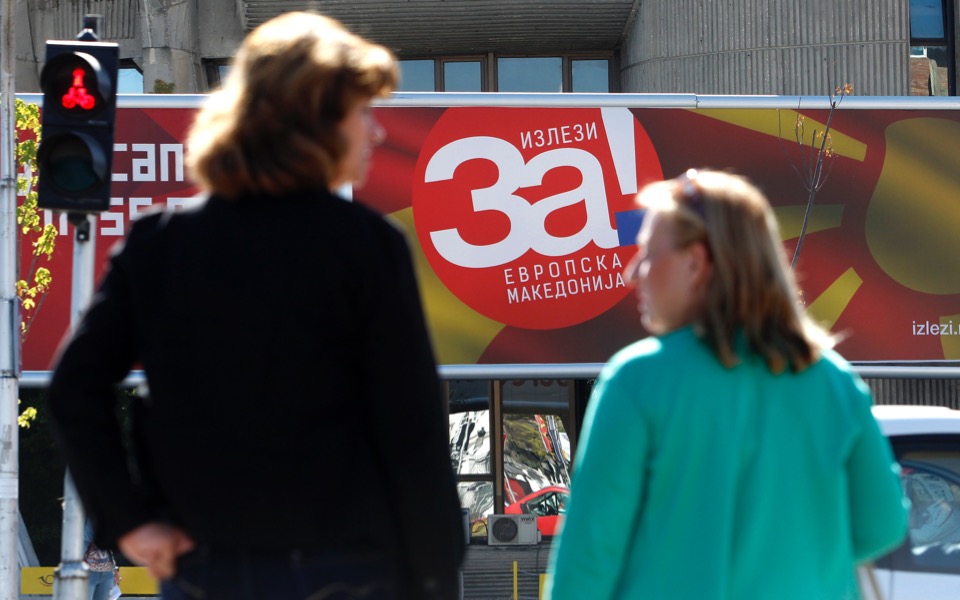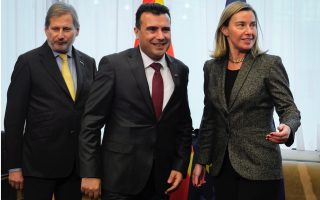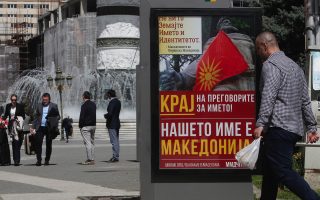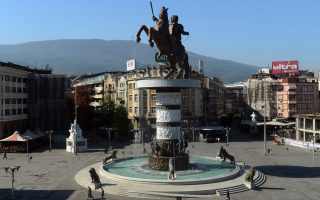A referendum for two countries

If the voters of the Former Yugoslav Republic of Macedonia approve of the Prespes agreement in Sunday’s referendum, then the political tension that now grips our neighbor will immediately move to Greece. If the enemies of the agreement hold sway, and the majority either votes it down or enough voters stay away, then the Greeks will be absolved of responsibility for what happens next.
Recent polls suggest that the majority in FYROM believe that the compromise with Greece is worthwhile, as it will allow their country to eventually join the European Union and NATO. It is unclear, though, whether President Gjorge Ivanov’s opposition to the agreement will lead to less than 50 percent participation in the vote – a result which the main opposition party claims will nullify the agreement. Prime Minister Zoran Zaev’s government insists that the result will depend solely on the majority of those who vote, irrespective of turnout.
The United States and the European Union are firmly behind the agreement, seeing it as a prerequisite for FYROM to join the EU and NATO. Russia, which has said that it will not back any side in the referendum, is clearly against NATO’s further expansion in the region. Everyone has their own geostrategic reason for their position. In Greece, where polls show the majority against the agreement, objections are based very much on emotion, on the sense that the country and its history are under threat and that there is no room for any compromise.
And so, the SYRIZA government, which started off bragging that it would turn Europe upside down, is promoting an agreement that serves the West’s strategic interests (and may possibly unlock Greece’s potential in the region), while New Democracy, which has always been in favor of Greece’s alliance with the West, rejects the deal. The main opposition party points out the agreement’s flaws, disregarding the fact that that if the problem is not solved now it will have to shoulder this responsibility when it comes to power. Smaller parties, too, face an existential dilemma in how they deal with the issue.
The voters in the Former Yugoslav Republic of Macedonia, in other words, hold the key to developments in their country and, to a great extent, in Greece. That is why many Greeks are investing in the hope that our neighbors will reject the agreement. But how did we come to this, where our political developments are dependent on foreign voters?





